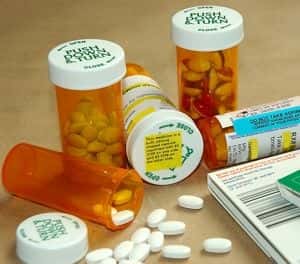
There’s something missing from your prescription drug label and chances are you haven’t even noticed. It’s the “lot number.”
Open your cupboard and you will find lot numbers on canned goods, crackers, macaroons, mayonnaise, soup and many other items. There is a lot number on your Advil, aspirin, Metamucil and other OTC medicines. But unless the pharmacy dispenses your pills in the original packaging from the manufacturer, you won’t find a lot number on your prescription bottle.
Because over 80 percent of prescriptions are now generic, it is increasingly common for pharmacists to take pills out of very big bottles and repackage them in little pill containers. Most states do not require pharmacists to put the original lot number on your label.
Why does it matter? In November, 2012, the large Indian pharmaceutical firm Ranbaxy recalled millions of atorvastatin (generic Lipitor) pills because of contamination with particles of glass. The FDA put the affected lot numbers on its website so that patients could theoretically trade in their cholesterol-lowering drug if it was included in the recall.
One reader contacted us:
“When the recall of Ranbaxy atorvastatin was announced because of glass particles in the pills, I had 30 left of a 90-day supply. The pharmacist said he had no way of tracing the lot number of my prescription. He offered to replace the pills I still had with pills from another supplier of atorvastatin.
“I don’t understand how manufacturers can track lot numbers of canned goods or cereal, yet consumers have no way of knowing if they have taken pills from recalled lot numbers. Apparently pharmacies are not required to pass the lot number on to the user or record it in their computer system.”
According to the FDA, the atorvastatin recall did not lead to any serious injury. But what if a more dangerous problem arose? In the past, manufacturing problems have affected the dose of critical medications.
A heart medicine called digoxin (generic Lanoxin) has a very narrow range of safety. Too much or too little can lead to serious, if not fatal, outcomes. In April, 2008, it was discovered that one company had manufacturing problems with its digoxin pills. The Institute for Safe Medication Practices issued a report on the problem:
“More than 1000 patient deaths have now been reported in connection with the recall of 800 million digoxin tablets manufactured in New Jersey by the Actavis Group. The tablets were recalled because of the possibility that the strength of tablets was greater than labeled and might provide a potentially lethal overdose to patients taking the drug to aid failing hearts” (QuarterWatch, May 7, 2009).
Because lot numbers are not required on drug labels, it was hard for patients to know if their pills were part of the recall. Since pharmacists are not required to keep track of the manufacturer or the lot number of the pills they dispense to patients they have a hard time contacting people who might be affected by a recall.
In our high-tech modern world of computers and bar codes, one would think that this is a solvable problem. If OTC medications and mayonnaise can carry lot numbers, perhaps it is time for pharmacies to make sure lot numbers are also added to prescription drug labels.

